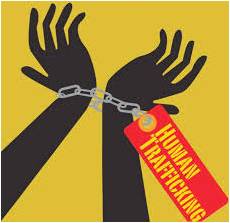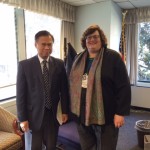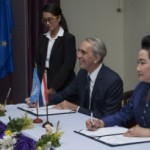
The Government Public Relations Department, Office of the Prime Minister on 13 March 2015: As Thailand is undergoing comprehensive reforms in all areas, the Government has mandated combating trafficking in persons as an integral part of Thailand’s reform agenda.
It has undertaken measures to tackle human trafficking and related problems, taking into account observations and recommendations in the 2014 World Drug Report by the United Nations Office on Drugs and Crime and the 2013 Trafficking in Persons Report by the US Department of State.
According to Thailand’s Trafficking in Persons 2014 Country Report, higher salaries abroad have attracted both Thai workers and workers from other ASEAN countries to job opportunities elsewhere, hence making them vulnerable to labor exploitation and human trafficking overseas. In this regard, Thailand’s central location as a transportation hub also makes it a source and transit country. Legal and illegal migrants often fall prey to brokers and middlemen who use deceptive tactics, luring Thai and neighboring countries’ nationals with promises of better opportunities both abroad and in Thailand.
In 2014, a total of 595 victims of human trafficking were identified in Thailand, of which 46 percent were Thai, while 54 percent were foreigners. The majority of sexually exploited victims were Thai; forced labor victims were mostly from Myanmar, whereas most of the forced beggars were from Cambodia.
The report says that the current government has successfully integrated the key dimensions related to the issue of human trafficking, which are migrant workers, forced labor, and child labor. This is a great step forward in tackling labor issues and human trafficking more effectively. In Thailand’s situation, the dimension of forced labor and human trafficking links very closely with that of migrant workers, since some illegal migrant workers are at risk of being victims of human trafficking.
The Government has initiated measures to support economic and social development and to eradicate poverty in the border areas between Thailand and neighboring countries. This will also help to create employment opportunities in the border areas, as well as in Thailand. One of the key measures that will help address human trafficking at its root causes is the establishment of the Special Economic Zones along the border areas between Thailand and its neighbors.
The Special Economic Zones are aimed at supporting social and economic development, stimulating the economy of the border areas, and improving the well-being of local people along both sides of the borders. Employment opportunities in Special Economic Zones will accommodate the labor supply from neighboring countries, because they will be able to work in the border areas. This will reduce the risk of people from both sides becoming victims of labor exploitation and human trafficking.
On 9 January 2015, the National Legislative Assembly approved the 2015 Fishery Act, which is expected to come into force by April 2015. The new law will enable the Ministry of Agriculture and Cooperatives to play an even more proactive role in addressing human trafficking in the fishery sector.
Source: http://thailand.prd.go.th/ewt_news.php?nid=977&filename=index




